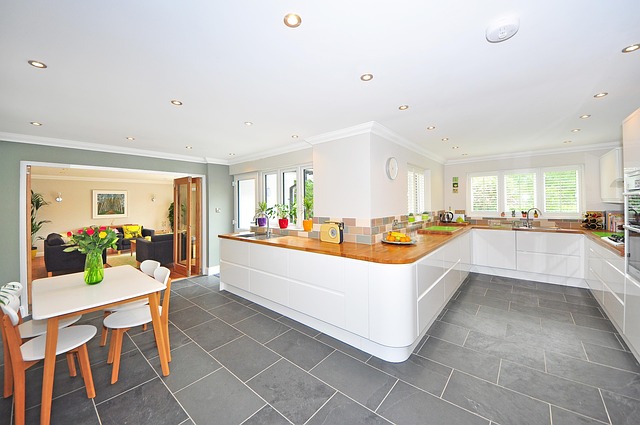Adopting green home improvements with eco-conscious building materials like recycled wood and bamboo reduces environmental impact and offers unique style. Focus on energy-efficient projects with solar panels and eco-friendly insulation, plus water-saving fixtures for significant environmental and financial benefits. These sustainable upgrades, including eco-friendly remodeling techniques, reduce your carbon footprint while enhancing living spaces and property values. Using local natural materials minimizes transportation energy, supports regional economies, and aligns with sustainability. Repurposing existing materials and opting for eco-friendly alternatives like bamboo and recycled steel further minimize waste and promote sustainable building practices.
Looking to transform your home into an eco-friendly oasis? Discover expert tips for green home improvements with a focus on sustainability and energy efficiency. From choosing eco-conscious building materials and implementing energy-efficient projects to adopting water-saving fixtures and exploring innovative renovation ideas for every room, this guide empowers you to make informed decisions for an environmentally friendly remodel. Embrace renewable energy solutions, sustainable practices, and eco-friendly upgrades for a greener future.
Choosing Eco-Conscious Building Materials
When considering green home improvements, selecting eco-conscious building materials is a pivotal step. Opting for options like recycled or reclaimed wood, bamboo, and natural fibers reduces your environmental footprint. These materials not only minimize waste but also offer unique aesthetic appeal, ensuring your renovation aligns with sustainability goals without compromising style.
Focus on energy-efficient home projects that incorporate renewable energy solutions such as solar panels and insulation made from eco-friendly substances. Additionally, integrating water-saving home fixtures, like low-flow showerheads and dual-flush toilets, significantly contributes to environmentally friendly remodeling. These choices not only benefit the planet but often lead to long-term savings on utility bills.
– Selecting sustainable and recyclable materials
– The impact of local and natural materials
Using local and natural materials for your green home improvements is a powerful way to reduce your project’s environmental impact. Locally sourced materials require less energy for transportation, supporting regional economies and minimizing carbon footprints. Furthermore, incorporating products made from renewable resources like bamboo, reclaimed wood, or natural stone aligns with sustainable practices, as these materials are either rapidly renewable or recycled.
Choosing eco-conscious building materials not only benefits the planet but also enhances your home’s aesthetics and value. For instance, wool insulation provides excellent thermal properties while being a natural and biodegradable material. When considering green renovation ideas, opt for water-saving home fixtures like low-flow toilets, aerators for faucets, and efficient showerheads to reduce water consumption without compromising on performance. These energy-efficient home projects contribute to long-term savings and a smaller environmental footprint.
– Tips for repurposing existing structures or materials
Repurposing existing structures and materials is an excellent way to incorporate green home improvements with minimal environmental impact. Before discarding old fixtures or architectural elements, consider their potential reuse in your renovation project. For example, reclaimed wood can be transformed into beautiful flooring or distinctive wall paneling, reducing the demand for new timber and preserving valuable resources. Similarly, repurposing old doors, windows, or even bricks can add character to your home while minimizing waste.
Many eco-conscious homeowners are opting for sustainable alternatives when undertaking home renovations. When it comes to materials, choose eco-friendly options like bamboo, recycled steel, or locally sourced products to support environmentally friendly building practices. For water conservation, install low-flow faucets and showerheads, which significantly reduce water usage without compromising performance. These simple yet effective green renovation ideas not only contribute to a more sustainable lifestyle but also offer long-term savings on energy bills and reduce your carbon footprint.
Integrating green practices into your home improvement journey not only benefits the environment but also offers long-term savings and a healthier living space. By opting for eco-conscious building materials, embracing local resources, and considering repurposing, you contribute to a more sustainable future. From selecting sustainable fixtures to implementing water-saving strategies, every small step towards green renovation ideas counts. Remember, energy-efficient home projects can be accessible and rewarding, allowing you to enjoy a comfortable living environment while minimising your ecological footprint. Embrace these expert tips for a seamless and meaningful transformation with environmentally friendly remodeling as your goal.
